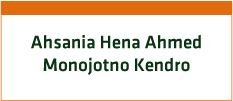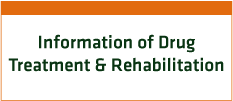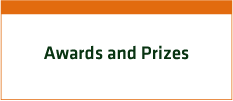Implementing a Pilot and Undertake a Research Study on Family Skills based Programme in Bangladesh
Background:
One of the UNODC/WHO interventions described in the International Standard of Drug Use Prevention with “very good” indication of efficacy are family skills based programme. Since 2010, under UNODC’s family skills initiative, over 35,000 parents and children in 23 countries have participated in piloting such evidence base family skills programme. Family skills training programme have proven highly effective in preventing substance abuse and other risky behaviors. The UNODC global experience in piloting family skills from 2010-2017 generated two main needs for family skills programming globally accounting for the specific need of low and middle-income countries: – First is the need for a family skills programme addressing needs of those in challenged settings (the refugees, the internally displaced, those in conflict/post-conflict zones, and rural areas, etc.). – Second is the need for a universal family skills programme designed for the needs of low and middle-income countries. The second programme for families, “UNited Family Skills” is currently being developed and piloted in Indonesia and Bangladesh as first piloting sites. Considering the above, in 2019 UNODC has signed a contract with Dhaka Ahsania Mission (DAM) for conducting the pilot under the UNited Family Skills Programme, Tejgaon Govt. High School at Dhaka, Bangladesh. The Project was implemented by jointly with Dhaka Ahsania Mission and Ministry of Education, Republic of Bangladesh Government.
After successful completion of the Family UN-ited piloting project, recently UNODC has signed another contract named “Research Agency to Support the Roll-Out of “Strong Families” – a Family Skills-based Programme as part of UNODC Project on Countering the Threats of Drugs and Crime in Cox’s Bazar” to implement another similar family skill programme among the ForciblyDisplacedMyanmarNationals (FDMNs) fromMyanmar, who are living in Cox’s Bazar (CXB), Bangladesh.
Objective: The overall objective of the assignment has focus on family skills-based programmes to strengthen capacities of families and caregivers to prevent negative social outcomes in children. The assignment is to specifically improve family skills, caregivers’ and children’s well-being, and cultural acceptability through a tool adapted to the local context with the help of a cultural adaptation.
Duration:
Phase- I: December, 2019 to March-2020
Phase-II: October to December- 2020 (Ongoing)
Donor: United Nations Office on Drugs and Crime (UNODC)
Target population: Age 8-15 years old children and their Caregivers.
Project Area :
In Phase-I: Tejgaon Govt. High School at Dhaka, Bangladesh
In Phase-II: October to December- 2020 (On-going) ForciblyDisplacedMyanmarNationals (FDMNs) fromMyanmarwho are living in Bangladesh in Cox’s Bazar.
Activities:
- For piloting conducting the training of the “Family UNited programme” among a limited number of families.
- For pre-piloting the adapted conduct training session on “Strong Families” programme in at least 2 cycles
- Revising the training materials with the developers based on the inputs received and the experience generated in the pre-pilot.
Training session structure and topics of Family UN-ited Training:
| Week 1 | Week 2 | Week 3 | Week 4 |
| Caregiver session 1 Understanding, Praising and Encouraging Children |
Caregiver session 2 Changing Challenging Behavior |
Caregiver session 3 Responding to Undesirable Behavior |
Caregiver session 4 Reducing Aggressive Behavior and Taking Care of Yourself |
| Child session 1 Building Positive Qualities |
Child session 2 Handling Stress |
Child session 3 Peer Pressure I |
Child session 4 Peer Pressure II and Friends |
| Family session 1 Our Family’s Positive Qualities |
Family session 2 Learning about Each Other |
Family session 3 Thinking about Family Values and Communication |
Family session 4 Understanding Peer Pressure and Family Connections |
Training session structure and topics of Strong Families Programme:
| Week 1 | Week 2 | Week 3 |
| Pre Caregiver session · Our family Strength · Understanding Children’s Stress · Tapping to Relieve Stress · Challenges for caregiver · Slow and Gentle breathing |
Caregiver session 1 · Qualities for our Children · Importance of love and limits · Showing love by listening · Handling of your own stress |
Caregiver session 2 · Helping Your Children Do What They’re Supposed to · Encouraging Good Behavior (Compliments, positive attention, clear messages) · Misbehavior (Ignoring, taking away privileges, extra chores) · Thinking of your Children’s strengths |
| Child session 1 · Get Acquainted Game · Balloons in the Air Game · Understanding Stress · Thinking of Your Own Stress · Learning to Calm Yourself · Thinking of about Happy Times · Ways of Handling Stress |
Child session 2 · What are Children’s Responsibilities · What are caregivers Responsibilities · Balloons in the Air · Qualities to Reach Your Dreams · Appreciating Parents |
|
| Family session 1 · Get Acquainted · Children share stress pictures · Understanding Each other’s stress · Children share Happy Times Pictures · Gentle Breathing Practice · Sharing Ways to Reduce Stress |
Family session 2 · What Do we have in Common · Qualities Children and Caregivers Value · Sharing Rules with Children · Our Family Values · Reaching our Dream Game · Sharing Appreciations |
| Comments from a family on this programme-
The child of the family said “It was a well-designed training because we have understood each other’s perspective through the sessions and it is very important for every family. Parents sometimes do not understand us and we also misunderstand them often. We hope that after this training we will understand each other better and remain happy.” The parents of the child told us that “It was an amazing training because this is the first time we have understood the importance to act as a family, rather as only a member. We have learnt the importance of understanding our children and their expectations. Our child also realizes how important it is to understand parents productively. So our request is to provide such training for all students and their families in Bangladesh.” — Phase-I, 2019 |






